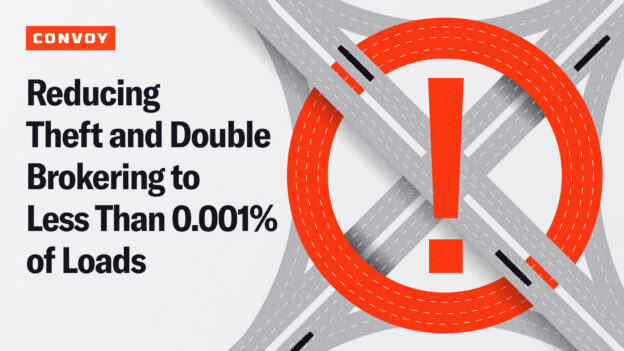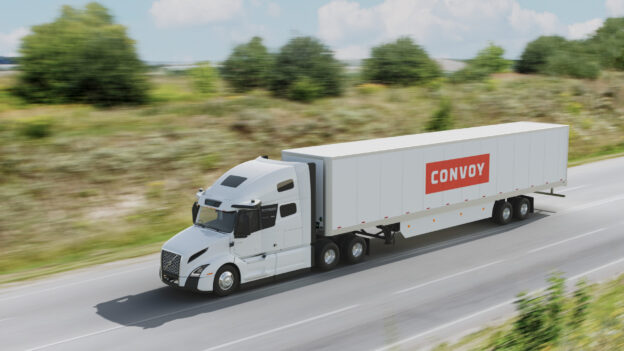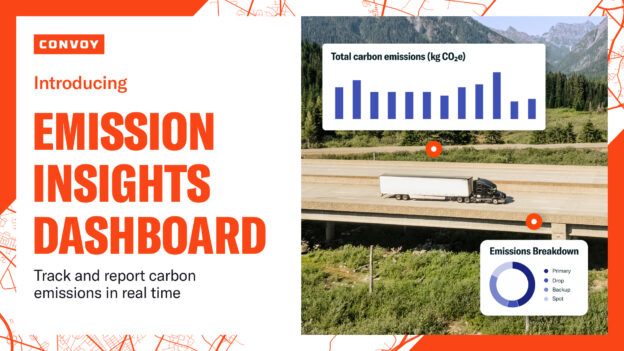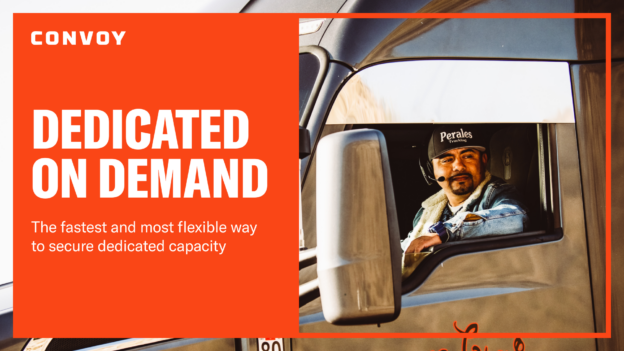Leading Sustainability At Numi Organic Tea With Jane Franch
Shippers, Sustainability • Published on January 5, 2021
Absolutely every company in business today has the ability to become more sustainable — it’s an undeniable fact. Organizations can implement basic steps like reducing paper use, incentivizing employees to use public transportation, and switching to LED lighting, or they can take a much deeper dive and look into product sourcing, how their manufacturing processes might impact the local communities, supply chain emissions, and so much more.
For those entities considering a greater investment in sustainability, my conversation with Jane Franch, Director, Strategic Sourcing & Sustainability at Numi Organic Tea, is quite enlightening.
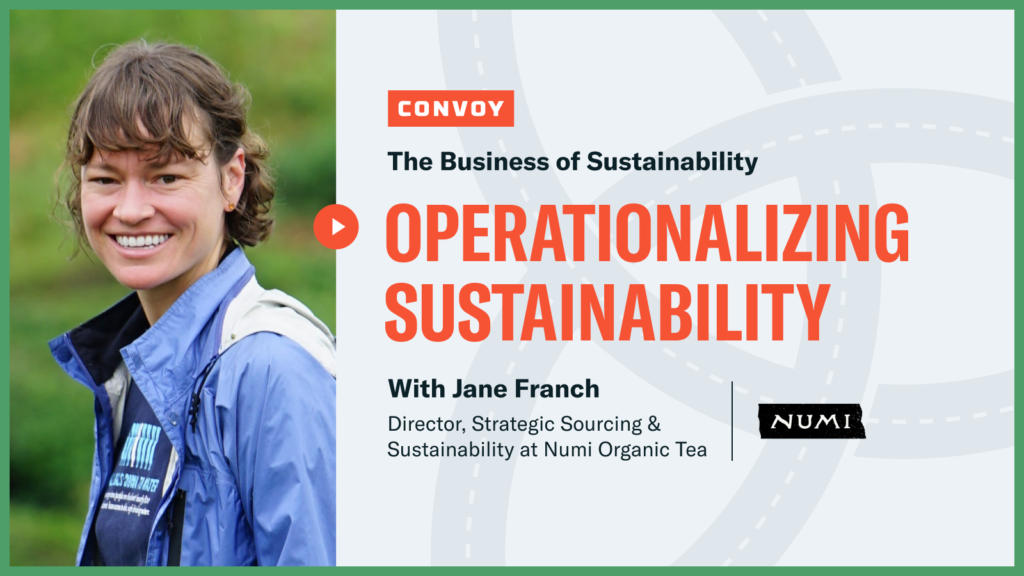
Jane gave us a peek inside the organization to tell us where she sits in relation to other departments, what she oversees, and how Numi Organic Tea approaches sustainability. For those who are thinking about incorporating a sustainability position into their organization — or are simply interested in how Numi addresses sustainability — Jane’s insights follow.
- Sustainability Is Most Effective As A Cross Functional Role: I work cross-functionally across the whole company. My role encompasses not just sustainability, but our strategy, where we’re going, and what our goals are. I also sit on the operations team in sourcing, so I’m really woven into the relationships that we have with our suppliers and the activities we have going on at origin. Additionally, I sit on our product development teams so I am working on innovation, and not only bringing a sustainability lens to our innovation strategy and processes, but also incorporating sustainability when we are looking at new ingredient sourcing, building new supply chains, and starting new partnerships and packaging opportunities for products. (1:00)
- How To Build A Team To Manage Sustainability: I am always looking to find more resources. I have had some really good luck with summer interns. That’s one of the support functions I often try to budget for and bring in — folks at the graduate level who can come in and bring some fresh thinking and focus on specific projects. I also consider who’s in the organization that has interest in the things I am wanting to do and how do I leverage them and bring them into the goals I have? Or where can I bring resources in from the outside? We are part of a number of industry groups that are collaborative partnerships for like-minded brands. (3:04)
- Sustainability Can Be Baked Into A Brand From Its Core: Sustainability is woven into everything we are as a company and why we are a company. A lot of the values that our founders tried to bake into the brand celebrate people, our connection to one another, and our connection to the planet. We try to bring forward the most beautiful and high-quality pure tea and botanical ingredients we can and that has guided so much of what we have done over the last 20 years. Whether you look at our packaging initiatives, sourcing organically, sourcing to fair-trade, and then incrementally moving as many of our main ingredients over to an ethically sourced origin as we could, it is all with sustainability in mind. (4:39)
- Determining How To Set Sustainability Priorities: There is so much to be done, it is such a challenge to sift through all the priorities and say “Where do we put our attention now?” It has been a journey about listening to our partners and when we enter a tea sourcing relationship, we try to listen deeply and understand what is happening at this origin and what the challenges are. If we enter into a business relationship, what are the different things we each bring to the table? How can we leverage our position and be the voice of our consumers to have an ethically sourced, cleanly produced product? How can we bring that back to the place of origin to positively affect the lives of the people there? And often that is achieved by listening to what is actually needed in the situation and determining if it is the right kind of match. We employ deep listening to think through what the priorities are. (8:08)
- Addressing Environmental Issues: Over the last five years, the climate has come into very clear focus for us — not just for Numi, but beyond the tea industry as well. We’ve had the time to think through what that means to us, determine what’s going on in our supply chain with emissions, decide what questions we need to be asking ourselves, where our resources are best spent, and how we engage with our supply chain around these questions. (9:30)
- How To Begin To Address Sustainability In An Organization: All businesses need to be asking themselves “What risks do climate change bring to my business and what am I not accounting for here?” We’ve had the luxury and the ability to not look at it straight in the eye for far too long and we are getting to the point now where it is no longer a luxury any business can afford. We can no longer ignore what is happening with the climate. On the supply side, it is deeply affecting our distribution network. Anybody who is not seeing this right now is not asking the right questions. As soon as we can ask ourselves those questions and connect the dots and really look at what this means for my business moving forward, then I think we can start to identify some of those priorities and determine where we might want to take action. (12:58)
- How Numi Is Sustainable: We are now climate neutral. We’ve calculated all of our emissions from our farm level through our warehouse and those are being offset with reduction initiatives as well as investing in voluntary offsets in the Amazon. Additionally, our switch to plant-based packaging has enabled us to displace 13.3 metric tons of single use plastic from the material stream. (16:47)
Watch the video or read the transcription below.
TRANSCRIPTION
Jennifer Wong: Today we have Jane Franch with us, the director of strategic sourcing and sustainability at Numi Organic Tea. Welcome, Jane.
Jane Franch: Thank you. I am thrilled to be here.
Jennifer: Tell me more about your role and responsibilities as leading sustainability for the company.
Jane: I personally think I have one of the funnest roles in the company. I sit in the operations team and I work quite cross-functionally across the whole company on the sustainability side. And my role really encompasses, you know, not just sustainability, our strategy and where we’re going and what our goals are. I also sit on the operations team in sourcing, so I’m really woven into the relationships that we have with our suppliers and the activities that we have going on at origin. Then I also sit on our product development teams so I am working on innovation, and you know, not only bringing a sustainability lens to our innovation strategy and our deep processes, but also, you know, brining that in when we were looking at new ingredient sourcing and building new supplies chains and new partnerships and packaging opportunities for both existing and new products. So, it’s really [2:00] a broad role that encompasses, you know, not only the kind of high-level strategies and goals of the company but also very tactically, you know, what’s going on with our product on a day in, day out basis.
Jennifer: What does your team look like?
Jane: Well, Numi is pretty small. Our operations team is 7 or 8 people now, so I actually have to report to me in operations our quality role, which is less of a sustainability role and more of a product role. In my role, one of the things I am always looking to do is kind of where I can find more resources and try to pull those in and leverage those. So, over the last couple of years, I have had some really good luck with some really incredible summer interns, that’s one of the support functions that I often try to budget for and bring in. Just some really stand out folks who are kind of at graduates’ level who can come in and really bring some fresh thinking and focus on specific projects. Oftentimes I am kind of looking at like, who’s in the organization that has interest in some of the things that I am wanting to do and how do I kind of leverage them and bring them into the goals that I have? Where can I kind of bring resources in from the outside? I think another, kind of, key support that I am often looking for is, you know, we are part of a number of industry groups that are kind of you know, pre-collaborative [4:00] partnerships that we have with like minded brands. So where can I, you know, leverage working groups or, you know, kind of other resources, you know, through our sort of family friendly brands, right, and kind of bring in that knowledge and expertise as well. So…
Jennifer: Wow. That’s excellent. You mentioned that the company, or I guess maybe the organization is smaller, but sustainability seems to play a huge factor in the way that you think about your business. How does Numi see the value of sustainability?
Jane: Yes, its really woven into everything we are as a company and why we are a company. I don’t think you can talk about Numi, you know, without talking about our mission. So, we were founded in 1999, you know, by a brother and a sister, Ream and Akmed, and they were born in Bagdad and had moved to the US when they were 7 and 8. But when they were growing up in Iraq, one of the beverages that is shared in the household, you know, is a drink of hospitality that you serve guests when they arrive in your home and it is called Numi tea. And Numi tea is a middle eastern dried lime tea. So, they had remembered this as a child being this really unique botanical product, but not only showcase one of the agricultural gems of the region where they grew up but also really was a symbol of, you know, hospitality and connection between people. It is a symbol of, kind of, sharing of culture, you know, sharing of kind of love and presence and participation and also a connection, kind of, connecting the experience of, kind of, culture and sharing to [6:00] back to the earth through this single, you know, single ingredient botanical product. So that really encapsulates, I think, a lot of the values that they tried to bake into the brand, or they have worked to bake into the brand is really bringing forward products that are celebrating people, our connection to one another or celebrating the planet, you know, our connection to the planet, and celebrating the bounty and beauty of nature. And also celebrating, you know, tea. What it is that we do so really trying to bring forward the most beautiful and high-quality pure tea and botanical ingredients that we can so, you know, that is at the very very heart and core of who we are and has guided so much of what we have done over the last 20 years. You know, whether you look at our packaging initiatives, you know, starting out in an industry when, you know, every tea box was wrapped in cellophane plastic wrap on the outside and you know, we said no. We are not going to do that. If we bring this product to market, we are going to make some changes. We are not going to have cellophane wrapping, you know, we’re going to bring forward post-consumer waste in our paperboard, which was not happening at that time. So, when we really sought as we moved forward and built our companies to ensure that these values were baked into the decisions that we were making, you know, sourcing organically, sourcing to fair-trade, within the first 6 or 7 years of our company, and then incrementally moving as many of our maintain ingredients over to an ethically source origin as we could overtime.
Jennifer: I see. And you mentioned that your journey for sustainability, you are pretty far along, especially when it has been so core to your business since day 1, [8:00] how do you think about setting, sort of, future sustainability goals? What is next on your horizon?
Jane: Yeah. You know, there is so much to be done. I think it’s such a challenge sometimes, to like, sift through all the priorities and say which one, where do we put our attention now. For us, you know, as we have gone down our path, it has been a journey about listening to our partners. Really thinking about, you know, when we go into a relationship, you know, a tea sourcing relationship, we are really listening deeply and understanding, you know, what is happening at this origin, what are the challenges here. You know, if we enter into a business relationship with one another, you know, what are the different things that we are bringing to the table. You know, how can we leverage, you know, our position and, you know, the voice of our consumers for, you know, to have an ethically sourced, you know, cleanly reduced product. You know, how can we bring that back to origin to positively affect the lives of the people there, right? And that often is through listening to what is actually needed in the situation and is this the right kind of match. So that’s kind of where we have come from really is through that sort of deep listening. We do continue with that in terms of thinking through what the priorities are. But I would overlay on that, you know, over the last 5 years we have really put more of a focus, I think climate has really come into very clear focus for us, in terms of, you know, that’s not just for Numi, that is of course, whole industry really like beyond tea industry is what we’re being called to right now. So, as we’ve had the time to kind of think through what that means to us, you know, and really think through, you know, what’s going on in our supply chain with emissions, like, what kind of questions do we need to be asking [10:00] ourselves, where are our resources best spent, how do we engage with our supply chain around these questions. It’s also brought up some really big and challenging truths too. You know, I mean, for example, if we look at tea in India, you know, there is not too many studies that have been done on, you know, climate change and tea in India but there was an interesting one that was done by the National Tea Institute of India that was looking at suitability in Isam, which is where we source, you know, the majority of our black tea. Suitability for tea cultivation under, you know, various IPCC, you know, climate forming scenarios and its, you know, its sobering to look at that and realize if we don’t, if we don’t take action, you know to keep ourself, you know, below the threshold that we’re being asked to right, the 1.5 degrees or even the 2 degrees, its not, you know, there’s a reality out there of, you know, these regions won’t be producing tea anymore. You know, there won’t be any tea for us to buy there, right. And it is really interesting to put that in the context of the relationships that we have with these people, right. So, we travel to that origin, you know, every year, you know, obviously this year is a different kind of a year, we are going there every year. You know, we’re sitting down with the tea pluckers, you know, we’re meeting with them, we’re going to their homes. You know, we’ve recently launched a water campaign there to bring clean drinking water, you know, into their houses which involves, you know, like getting their school children involved, you know. It’s a very intimate relationship and it really is sobering to kind of [12:00] think about the consequences of inaction. You know, not only from like, that core sort of business, well where would we buy our tea, but also like just from that deep human perspective of, you know, what is our responsibility to one another, you know, in that larger reality, right?
Jennifer: Right. For businesses that maybe aren’t as close to their sourcing partners or they don’t know these stories about how their business is potentially impact these communities, so they haven’t made the investment in sustainability yet, what do you think is going to need to happen so more businesses really recognize the urgency and the impact that they can have if they just paid more attention to kind of their business in the way that you’re describing that you have?
Jane: Yeah, yeah. I think, you know, one of the first things to do really is to, you know, I think all businesses need to be asking themselves, you know, what risks does climate change bring to my business and what am I not accounting for here. You know, I think we’ve had the luxury and the ability to not look at it straight in the eye for, you know, for far too long and I think we are getting to the point now where it is, that’s not longer a luxury that any business can afford. You know, I mean, I think what I just described was a very human and kind of, you know, that’s one piece of it but another piece of it is you know, about 2 years ago we had launched a new product that was in a type of packing, it was in like a polypropylene plastic bottle that was suitable, you know, we chose that bottle because of the way the product was being pasteurized, it need to have a certain, you know, that particular bottle type was perfect for the way the bottle was being manufactured and there wasn’t really a different alternative. But we launched it during the polar [14:00] vortex. I don’t know if you remember like the polar vortex from 2 years ago where like, this rigid air came down from the north pole and all of the sudden it was minus whatever degrees in Chicago. And we launched that product in February and we were shipping it to one of our sales reps who was going to a tradeshow in Toronto and like, the plastic, it just like, it shattered right because, you know, the plastic, you either have plastic, and I don’t know much about this so I am like, kind of, this is what I learned at the time was that like if you manufacture plastics and it has more malleability when it’s hot, you’re compromising its strength when its cold, right. Who knew? You know, and then the polar vortex hits and these, you know, these bottles are like shattering when they like get placed on a table basically or get hit accidentally. So, you know, that had a huge cost for us in terms of all these like advanced samples and early shipments that we had sent out that suddenly we had to bring back or reship, or whatever. And so, you know, which is all to say that nobody can ignore anymore what is happening with climate and you know, on the supply side, it’s the whole, you know, its effecting deeply our distribution network, its affecting deeply like the incoming materials that we’re trying to get to places that you know, now can’t travel here because, you know, there is this storm or this hurricane or this typhoon, so it’s really it is deeply affecting all aspects of business and you know, anybody who’s not seeing that right now is not asking the right questions. So, you know, as soon as we can ask ourselves those questions and connect the dots and really look at, like, what does this mean in a clear-eyed way for my business moving forward, [16:00] then I think we can start to kind of get to some of those priorities and where we might want to take action.
Jennifer: For the average consumer that picks up the Numi team the next time they are at the grocery store, what is something that they wouldn’t know about sustainability at the company?
Jane: That’s a good question. I think there are a couple of really exciting things. One of them is that we are now climate neutral. So that’s super exciting that we’ve now, we’ve calculated, you know, all our emissions from our farm level through our warehouse and, you know, those are being offset now through…we’ve done some reduction initiatives where we can but also, you know, investing in voluntary offsets through a really awesome project down in the Amazon. So that I think is something for consumers to know when they pick that product up that this is happening a beneficial impact on your personal carbon footprint. And the other really cool thing recently that we’ve confirmed is that in our switch to plant-based packaging, we’re displacing 13.3 metric tons of single use plastic from the material stream so we’re super excited about that. And you know, every purchase, you know, every consumer, you know, picking that up, its really activating your values as a consumer and that’s really what we seek to do is to be a conduit and a voice, you know, [18:00] for our consumers and, you know, for really the values that we talked about earlier and really help them to activate, you know, the changes that they want to see in the world as well.
Jennifer: Thank you so much again, Jane. Really enjoyed this conversation.
Jane: Thank you, Jennifer. It was a pleasure to speak with you.
